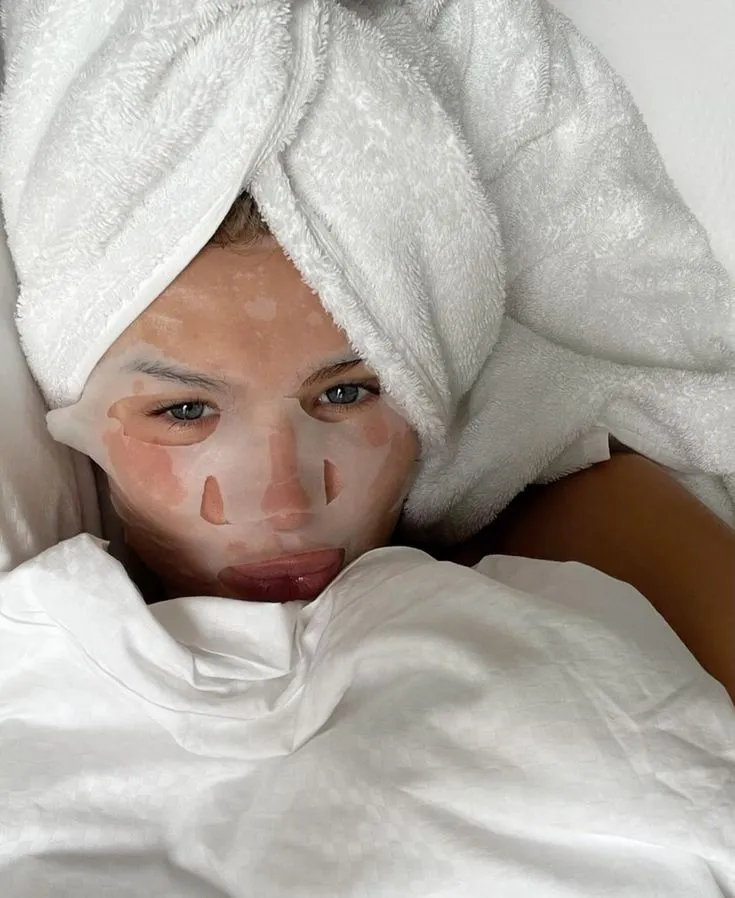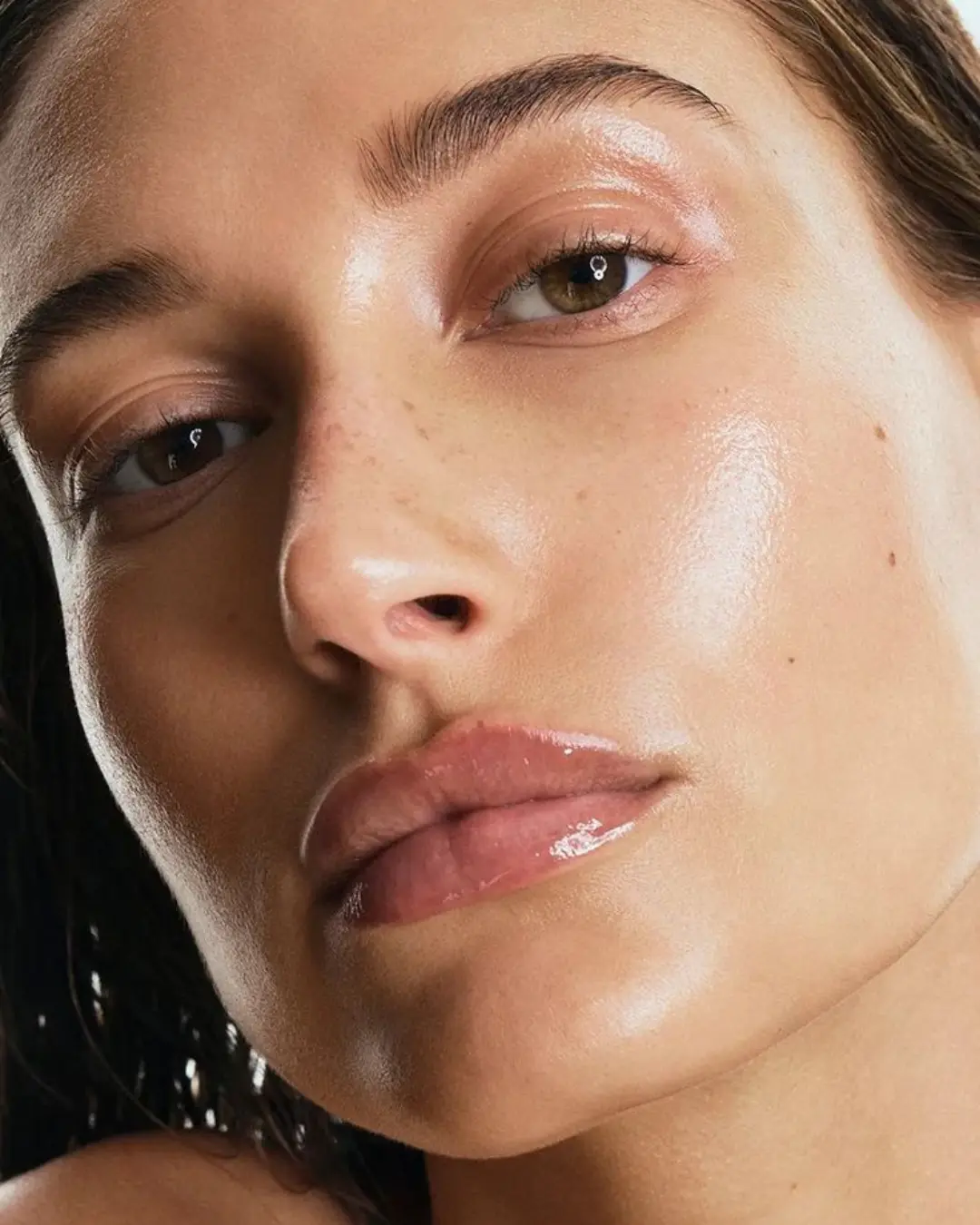Everyone wants to get glowing skin, but with so much advice available, it can be confusing to know where to begin. Dermatologists, who are skin experts, have shared their best tips for achieving a radiant complexion.
Here are 11 ways to get glowing skin, according to dermatologists:

1. Maintaining a Consistent Skincare Routine
Keeping a regular skincare routine is key to having healthy, glowing skin. Washing your face twice a day removes dirt, oil, and makeup, which helps prevent clogged pores and breakouts. Using a toner balances your skin and gets it ready for moisturizers and serums. Moisturizing is important for all skin types, even oily skin, as it keeps your skin hydrated and protected. Adding a night cream can give extra moisture and help repair your skin while you sleep.
2. Hydrating Inside and Out
Drinking at least eight glasses of water daily helps remove toxins and keeps your skin hydrated. When your skin is well-hydrated, it becomes more flexible and less likely to develop wrinkles. Using skincare products with ingredients like hyaluronic acid, glycerin, and ceramides helps retain moisture. Choose moisturizers that won’t clog your pores and are suitable for your skin type.
3. Exfoliating Regularly
Exfoliating your skin should be done gently to avoid harm. Using chemical exfoliants like glycolic acid or salicylic acid can reach deeper into your skin, working better than scrubs. They help with dark spots, unclogging pores, and smoothing your skin. However, exfoliating too often can irritate and damage your skin, so stick to the recommended guidelines.

4. Incorporating Antioxidants
You can find antioxidants in serums, moisturizers, and sunscreens. Vitamin C serums are fantastic for brightening your skin and reducing signs of aging. Niacinamide, another strong antioxidant, helps with redness, inflammation, and makes your skin more elastic. Using different antioxidants in your skincare routine can protect and refresh your skin.
5. Using Retinoids
Retinoids come in different strengths, from mild over-the-counter retinol to strong prescription retinoic acid. They can help with acne, reduce fine lines and wrinkles, and improve skin tone. Since retinoids can be irritating at first, it’s best to start using them slowly, just once or twice a week, and then gradually use them more often as your skin gets used to them.
6. Protecting Your Skin from the Sun
Sun exposure can cause early aging and skin cancer. It’s important to wear sunscreen every day. If you’re spending time outside, make sure to reapply it every two hours.Also, wear protective clothing, hats, and sunglasses. Sunscreens with zinc oxide or titanium dioxide are gentle and offer protection against harmful UV rays.
7. Getting Enough Sleep
Not getting enough sleep can raise your stress levels, which can cause your skin to become inflamed and break out. It can also make you age faster, leading to wrinkles and a dull look. To help your skin repair and look its best, try to stick to a regular sleep schedule and create a calming bedtime routine.

8. Eating a Healthy Diet
What you eat affects your skin. Eating foods like berries, leafy greens, and nuts can protect your skin from damage. Fish and flaxseeds have omega-3 fatty acids, which keep your skin healthy and reduce redness. Avoiding processed foods and sugar can help prevent pimples and other skin problems.
9. Managing Stress
When you’re super stressed, it can make skin issues like acne, eczema, and psoriasis worse. Doing stuff that relaxes you every day can make your skin healthier overall. Stuff like exercise, meditation, and doing things you love can help calm your mind and make your skin look better too.
10. Staying Consistent with Professional Treatments
Going to a dermatologist for treatments can help fix skin problems that your regular skincare routine can’t handle alone. Things like chemical peels make your skin smoother and more even, while microdermabrasion can help with fine lines. Laser therapy is good for fixing spots and scars. Seeing a dermatologist regularly keeps your skin healthy and deals with any new problems before they get worse.
11. Avoiding Smoking and Limiting Alcohol
Smoking makes you look older faster, giving you more wrinkles and a dull skin tone. It also raises your risk of getting skin cancer. Drinking less alcohol can keep your skin hydrated and less red, so you look younger. Doing these things can really improve how healthy and glowing your skin looks.
Getting glowing skin is about keeping up with your skincare routine, making healthy choices in your everyday life, and getting professional help if you need it. Dermatologists suggest following these simple tips to make your skin look brighter and younger. And remember, your skin reflects how healthy you are overall, so taking care of yourself inside and out will help your skin look its best.
